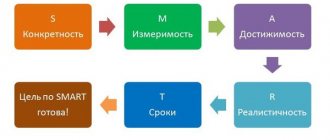Evgeny Valentinovich Kaspersky is a famous programmer specializing in the fight against computer viruses, hackers, cybercriminals, and all other threats to information systems and their users.
Evgeny Kaspersky has been involved in cybersecurity for a long time; he is older than the Internet, the first viruses and the first personal computers.
He heads Kaspersky Lab, a world-famous structure that develops computer protection systems.
Kaspersky billionaire is one of the few on the Russian Forbes list who continues to grow rich in recent years.
The figures that determine the positions in the Forbes ranking do not claim to be completely accurate, but Kaspersky’s position in the financial world is determined very clearly.
The success looks even more impressive given the fact that Evgeny Kaspersky works only in his specialty, does not speculate on the stock market and does not buy non-core assets for commercial purposes.
Fortune and Forbes rating
| Year | State | Place in the ranking of the richest Russians |
| 2011 | US$800 million | 125th place |
| year 2012 | 700 million | 139th place |
| year 2013 | 800 million | 134th place |
| year 2014 | 900 million | 118th place |
| 2015 | 1 billion | 86th place |
| 2016 | 1 billion 100 million | 66th place |
| 2017 | 1 billion 300 million | 70th place |
Biography
He was born in 1965 in Novorossiysk. The family was intelligent and had nothing to do with programming. His father worked at a cement plant as an engineer, and his mother was an archivist-historian. Only Evgeniy Kaspersky himself truly fell in love with mathematics in the family. His biography was built on this love.
From Novorossiysk, the parents moved near Moscow - to Dolgoprudny, where the boy studied at an excellent school and attended a special course in his favorite subject. Childhood, family, parents - the biography of Evgeny Kaspersky, as the only son, was built only on love and mutual understanding. The parents liked their son’s hobby, and they supported him in every possible way: they bought special books and helped him in everything.
The result was brilliant. In 1980, Evgeny Kaspersky, whose biography was already beginning to take shape in a certain way, won the All-Union Mathematical Olympiad, and therefore entered the Kolmogorov boarding school. Everyone already knew then that this educational institution belonged to Moscow State University. However, there were higher educational institutions in the country that were much cooler. In 1987, it became clear that the choice made made Evgeniy Kaspersky’s biography look even richer: he received a diploma in mathematics engineering from the KGB Higher School. This was followed by several years of service, up to the rank of senior lieutenant.
KASPERSKY: the number of interaction with the world is “8”
People under the influence of the number eight are characterized by a restless and purposeful character. They are rarely satisfied with what they have and strive to expand the boundaries of their capabilities as much as possible. The potential of "eight-athletes" is very great, but their demands cannot be called small, so they rarely experience a feeling of satisfaction from the work done or the joy of victory. Eight people know how to make plans and implement them, but they are forced to put up with the fact that everything turns out a little (or even completely) differently than planned.
Eight players are afraid of little. Responsibility for others and leading large teams is natural for them, as are drastic changes in life. As a rule, they get along well with others, but try to avoid too much intimacy and prefer to play the role of leader in relationships. Highly valuing intelligence, moral qualities and a sense of humor, they cannot tolerate flattery and lies, and are also very sensitive to manifestations of impoliteness and tactlessness.
The marital relationships of the “Eighters” develop peacefully, although there is not always passion or even deep affection in them. However, people of number 8 almost always strive for stable relationships and marriage - they feel uncomfortable without a permanent life partner. Their innate tact helps them avoid quarrels in the family, and their ability to both act independently and distribute responsibilities helps them cope with everyday problems.
Eights love to receive guests and do not miss the opportunity to show off their home, which is usually large and cozy. Own housing is a “fad” for many people of eight; They usually don’t feel too comfortable in rented apartments or their parents’ house. At the same time, they cannot be called money-grubbers, interested only in material goods; Many octuplets generously share everything they earn, take an active part in the activities of charitable organizations and help close and distant relatives with money. But the main thing that Eight people give to others is their love and sincere interest.
Eights care so much about others that sometimes they lack the strength and energy to organize their own lives. Another common problem is the pursuit of unattainable goals and the inability to remain calm and common sense when obstacles appear along the way.
Job
The science of mathematics was always easy for him, cryptography and computer technology were extremely interesting, and therefore success was obvious. Immediately after graduation, the first triumphs appeared in the biography of Evgeniy Kaspersky. He got a job at a multidisciplinary research institute that existed under the auspices of the USSR Ministry of Defense. This was the service.
This is where research into computer viruses began. Success did not happen overnight; it took the programmer ten years to establish himself properly in the field of anti-virus protection of operating systems, after which it was already possible to organize his own business.
Assets
+ Kaspersky Evgeniy Valentinovich·
Kaspersky (formerly Kaspersky Lab) (controlling stake%)
·
New cloud technologies (29.5%)
·
Kaspersky Mathematical Gymnasium
·
NPO Adaptive Industrial
Kaspersky Evgeniy Valentinovich
Kaspersky Evgeniy Valentinovich
- founder, head of antivirus research, as well as CEO of Kaspersky Lab and one of the world's leading antivirus experts.
Member of the Computer Virus Research Organization (CARO), which brings together the most prominent experts in the field.
Secrets
One of the most famous experts in the fight against cybercrime today is Evgeny Valentinovich Kaspersky. His biography is exceptionally rich in events, including dangerous ones for Evgeniy himself, “who saves the world every day,” and for his family. Everyone knows the incident with the kidnapping of his son. But this man was and remains a real threat to world hacking. Photos of Evgeniy Kaspersky can be easily obtained on the Internet, as well as the simplest information about him known to the whole world.
However, the main part of his life has always been closed to everyone and will probably never be fully revealed. At least not in our lifetime. For example, Evgeny Kaspersky only jokes about nationality. Jews, Germans, and Bulgarians place him on the branches of their family tree (the latter even spread the theory that he invented the computer in Bulgaria). In fact, the name is Polish, and Evgeniy Kaspersky himself is, first of all, a Soviet man.
Person of the Russian Federation
In 1987, Evgeny Kaspersky began working at a multidisciplinary research institute under the USSR Ministry of Defense. It was here that he began studying computer viruses after encountering the Cascade virus in 1989. After analyzing the virus code, Evgeniy developed a special utility to treat it and became interested in this topic.
In 1991, Evgeny Kaspersky began working at the KAMI Information Technology Center, where he headed a small group of specialists developing anti-virus solutions.
In November 1992, the group released its first full-fledged product - AVP 1.0. In 1994, he won a comparative test conducted by the test laboratory of the University of Hamburg. This provided the product with international fame, and developers began to license their technologies to foreign IT companies.
In 1997, Kaspersky and his colleagues decided to create their own company, acting as co-founders of Kaspersky Lab. Evgeniy did not want his last name to appear in the name of the company, but he was convinced by Natalya Kasperskaya, Evgeniy’s wife at that time, who was also one of the co-founders of the Laboratory. In November 2000, the AVP product was renamed Kaspersky Anti-Virus.
Kaspersky led antivirus research at the company from its founding until 2007, when he took over as CEO of Kaspersky Lab.
Kaspersky's office is located in a new business center on Leningradskoye Shosse. Evgeny Kaspersky's office is located on the same floor with the company's leading developers and analysts, next to Kaspersky Lab's Global Research Center (GReAT). Evgeniy is a co-author of several patents in the field of information security, including a patent for a restrictive attribute security system that controls the interaction of software components. This patent was issued for the technology underlying the secure operating system currently being developed by Kaspersky Lab.
Today, Kaspersky is one of the world's leading experts in the field of virus protection. He is the author of a large number of articles and reviews on the problem of computer virology, and regularly speaks at specialized seminars and conferences in Russia and abroad. Kaspersky is a member of the Computer Virus Research Organization (CARO), which brings together experts in the field.
Kaspersky is the founder of the Virus Bulletin conference, which has been held annually by the antivirus industry since 2001.
In 2012, Kaspersky was included in the ranking of the 100 most influential thinkers of the year according to Foreign Policy magazine and took 40th place, losing out among Russian representatives to the punk group Pussy Riot, which took 16th place in the ranking.
In December 2012, the American magazine Wired placed Kaspersky in 8th place on a list of the 15 most dangerous people in the world. Kaspersky was awarded this place for exposing American cyber weapons created for espionage in the Middle East and disrupting the Iranian nuclear program.
Evgeniy feels like a man who is on the front line in the war against cybercriminals. The “laboratory,” according to Kaspersky, has no investors, operates exclusively at the expense of its own resources, and invests all profits in further development.
In March 2015, Bloomberg published material from which it follows that since 2012, Kaspersky’s company’s ties with Russian intelligence services have sharply intensified, and “people with close ties to Russian military or intelligence structures” have taken up key management positions in the Laboratory. According to the CEO of Kaspersky Lab, the agency failed to “dig up” anything: one-third of the Bloomberg article consists of “purely reliable, public facts” contained in reports and other public documents of the company.
Views on cybersecurity
Evgeny Kaspersky has been openly expressing concerns for several years about the threat of a cyber attack on critical infrastructure, which could lead to catastrophic consequences. He supports the idea of an agreement on the non-proliferation of cyber weapons, believing that the world community must put an end to the cyber arms race.
During his travels around the world, Evgeniy Kaspersky regularly gives reports on the dangers of cyber warfare and the need to counter the escalation of cyber threats at the global level. He views cybersecurity education as key to successfully combating cyber threats. This applies to both ordinary users and IT security specialists, who often lack qualifications. Evgeniy also actively supports the idea of universal standardization and the adoption of uniform policies in the field of cybersecurity, as well as the idea of cooperation between government agencies and companies operating in the IT security industry.
“Private companies—especially in the IT and security-related industries, as well as in some strategically important industries for which IT security is a top priority—have accumulated a wealth of practical experience in combating cyber threats that the government could use extremely well.”
Evgeny Kaspersky supports the idea of using Internet passports when performing critical operations on the global network: when voting in elections, working in online banking systems, receiving government services, etc.
“It seems to me that the Internet space needs to be divided into three zones. The “red” zone is for those processes where safety is critical; here the use of an Internet passport is mandatory. In the “yellow” zone, the requirements for authorization are lower - it is necessary, for example, to verify the age of the buyer in online stores selling alcohol or offering products for adults. And finally, the “green” zone: blogs, social networks, news sites, chats - everything that has to do with freedom of speech. No authorization is required here."
— Evgeniy Kaspersky
According to Kaspersky, the main vulnerability of the Internet is its anonymity. Therefore, in order to make the World Wide Web less vulnerable, each user should be accurately identified. Kaspersky suggests allowing connection to the network only after receiving a special passport and passing an exam, similar to a driver’s license. And to monitor compliance with the law on the Internet, a special Internet police (Internet Interpol) should be created. “Everyone is required to have an ID or Internet passport,” Evgeny Kaspersky told ZDNet Asia while attending an Interpol conference in Singapore. — The Internet was originally developed not for public use, but for scientists and the US military. Only then was it presented to the public, and it turned out to be a mistake... to present it the way it was done.” At the same time, Kaspersky is convinced that the new system should be exclusively compulsory, and all countries should obey it. “If any country disagrees or ignores the agreement, just cut off their Internet,” he said. Evgeny Kaspersky has been making a proposal to escape anonymity on the Internet for several years, but only now his ideas have attracted the attention of the Western press. Considers it necessary to introduce criminal penalties for spam.
Family and hobbies
Married for the third time, five children. From his first marriage with Natalya Kasperskaya (divorce in 1998), Evgeniy has two sons: the eldest Maxim (b. 1989) studied at the Faculty of Geography of Moscow State University, works in marketing, the younger Ivan (b. 1991) at the Computer Science and Computing Complex of Moscow State University.
On April 19, 2011, the youngest son Ivan was kidnapped near the Strogino metro station and released five days later as a result of a joint special operation of the Moscow Criminal Investigation Department with FSB operatives with the support of OMSN fighters in the Sergiev Posad area. The criminals, who demanded a ransom of €3 million, were detained. In the summer of 2012, the court sentenced one of them, A. Ustimchuk, to 4.5 years in prison.
Ex-wife, co-founder and shareholder of the company - Natalya Kasperskaya. The former spouses continued to successfully collaborate in business for a long time. In 2012, it became known that the antivirus company and Infowatch, headed by Natalya Kasperskaya, decided to become completely independent businesses. Evgeniy and his second wife and Natalya and her new husband sometimes vacationed together, skiing.
Since 2009, in his third marriage, his wife is Chinese, three children, the eldest will go to school in 2021.
Kaspersky is fond of Formula 1 races, which he regularly attends, and collaborates with the Ferrari team. Due to the nature of his work, Evgeniy spends most of the year on business trips. He maintains a blog in which he regularly talks about IT security issues, as well as interesting places he has visited. One of his favorites is Kamchatka, where he has vacationed several times already.
According to Bloomberg, Kaspersky sometimes goes to the bathhouse with friends, among whom are employees of the Russian special services. Without denying this fact, the programmer explained that in matters of combating cybercrime, his company cooperates with many intelligence agencies of different countries and sometimes communication continues in a more informal setting.
Evgeniy lives in Moscow. He loves skiing, thanks to which he met his second wife, and often visits the ski resorts of Italy and Austria. He enjoys kayaking and mountaineering. He willingly takes photographs and spends hours showing them to friends. He starred in a commercial for his antivirus with Jackie Chan.
State
In 2021, Forbes magazine estimated Kaspersky's personal wealth at $1.1 billion. In 2013, CEO magazine estimated his wealth at $1 billion.
With the exception of Kaspersky Lab shares, Evgeniy does not have significant investments: “I have a company, an apartment in Moscow and a BMW car. But other than that I have nothing else.”
Awards
In 2012, Evgeniy Kaspersky was awarded an honorary Doctor of Science degree from the University of Plymouth. That same year, he was named one of CRN's Top 25 Innovators of the Year.
Awards and prizes:
Medal "Symbol of Science" (2007).
National Friendship Award of the People's Republic of China (September 29, 2009) - for “contribution to the development of the Chinese information security industry”;
The Heihe River Friendship Award (September 29, 2009) recognizes foreign specialists who have made significant contributions to the economic and social development of the city. For “contribution to the development of the Chinese information security industry”;
State Prize of the Russian Federation in the field of science and technology 2009 (June 4, 2009) - for major achievements in the field of modern computer information protection systems;
CEO of the Year, SC Magazine Europe - 2010
Lifetime Achievement Award, Virus Bulletin - 2010
Award for Leadership in Brand Development Strategy, World Brand Congress - 2010
World's Most Influential IT Security Leader, SYS-CON Media - 2011
Businessman of the Year, American Chamber of Commerce in Russia - 2011
Outstanding Business Contribution Award, CEO Middle East - 2011
Technology Hero of the Year, V3 - 2012
Top-100 Global Thinker, Foreign Policy Magazine - 2012
Top 100 IT executives, CRN - 2012
Award of the President of the Republic of Armenia for global contribution to the field of information technology (2015).
1989
From this year on, the direction of all future activities of one of the most famous and most influential people in the world was clearly outlined. It was in 1989 that the successful programmer got his first personal computer. And, as it turned out, infected. At the origins of the development of personal computers, few people knew about viruses; they were extremely rare. Such simple ones, even primitive ones, would probably be funny to today’s programmer.
But they didn’t yet know how to fight them. Kaspersky was lucky; fate itself cooperated, slipping the infection into the very first computer, which Evgeniy cured without difficulty. But I saved the virus on a floppy disk for study. After analyzing this malicious program (it turned out to be “Cascade-1704”), Kaspersky wrote a “healing” utility. He did all this purely out of curiosity, but the Air Force General Staff itself became interested. From then on, viruses began to arrive to the programmer constantly, more and more new, more and more complex. Kaspersky cracked them like nuts.
Characteristic features of the surname KASPERSKY
- power
- comfort
- force
- talkativeness
- vitality
- insight
- passion
- emotionality
- vigor of self-expression
- impressionability
- peacefulness
- subtle spirituality
- endurance
- nervousness
- insight
- wealth of ideas
- taking care of appearance
- loneliness
- modesty
- dogmaticity
- constant pressure
- self-confidence
- imperiousness
- common sense
- moodiness
- oppression
1991
In 1991, another fateful event happened: the already well-known programmer was accepted into KAMI - the Information Technology Center, where he continued to work on anti-virus programs. Six years of work at this institution yielded an exceptionally good result - the Kaspersky Anti-Virus program, which very soon became popular both in Russia and in all CIS countries.
The level of protection was very high, and this new product soon began to be installed not only on the computers of various companies, but also on almost every personal one. The program was constantly being improved, new versions appeared, also very successful. And in 1997, Evgeny Kaspersky and a small group of colleagues and like-minded people founded Kaspersky Lab, which quickly became a large company with its main office in Moscow, and its representative offices were opened in various parts of the world.
Evgeniy Kaspersky now
Evgeniy Valentinovich is the author of numerous articles and reviews, willingly speaks at seminars, shares his experience at conferences in the Russian Federation and abroad.
Kaspersky's company cooperates with law enforcement agencies. In June 2016, Kaspersky Lab played a key role in the search for 50 hackers from the Lurk group.
Evgeniy Kaspersky now
In December 2021, an investigation began under the article of “High Treason” against Kaspersky Lab employee Ruslan Stoyanov and the head of the unit of the Information Security Center of the FSB of the Russian Federation Sergei Mikhailov. The Laboratory does not deny the arrest of the employee, but emphasizes to the media that the charges relate to the period when Stoyanov was not yet working at the company. In 2021, journalists received information that the case was fabricated due to an internal conflict in the intelligence services.
Ruslan Stoyanov
At the end of 2021, Evgeny Kaspersky filed an antitrust complaint against Microsoft with the authorities of the European Union and Russia, and called the company’s behavior lawlessness on his personal blog. The cause of the conflict between the two companies was a change in Microsoft's approach to third-party software. The new operating system replaces user-installed programs, including antiviruses, with analogues produced by Microsoft. Kaspersky provided evidence that the proposed analogues in the field of information security are much worse than the Laboratory’s products, which means that the user is in danger due to the fault of Microsoft.
Cooperation
Conferences and seminars on computer virology are held on behalf of the company, both in our country and abroad. Students are taught to resist hacker attacks. Now information is being exchanged with the intelligence services of Russia, Israel, Poland, Brazil, and America, and the company’s turnover has grown incredibly. The exact figure is unknown, but in the early 2000s, experts calculated about seven hundred million dollars a year.
From history: the founder of the company really did not want to put his own name on public display, but in those days Evgeniy Kaspersky had already had his personal life for a long time. And his first wife, Natalya Kasperskaya, insisted on exactly this name for the future brand. She also became a co-founder. Simultaneously with the launch of his own company, SecureList opened - an Internet portal that is an encyclopedia of viruses, errors, vulnerabilities, and malware. The information is constantly updated; it is published on two pages - in English and Russian versions.
Kaspersky on Instagram
The Instagram of Kaspersky Lab founder Evgeniy Kaspersky (about 16,000 subscribers) is dedicated to travel and nature. The entrepreneur takes photographs of clouds, horses, sunsets from various trips, the latest ones being China, New Zealand, Tien Shan, Antarctica. In an interview with The Secret, he said that he spends 400-500 hours a year on flights.
Kaspersky himself, like a real travel blogger, is also often in the frame - either eating oysters, or jumping into the river and swimming in an icy lake, or riding a bicycle around the city wall of Sinai. Work photographs are rare. In June, Kaspersky announced on Instagram that the Laboratory had opened an R&D center in Jerusalem, and in May he published a photo from his presentation at the CeBIT exhibition in Australia.
Sources
- https://zen.yandex.ru/media/hrmonitor_ru/pochemu-evgeniia-kasperskogo-nazyvaiut-agentom-fsb-i-odnim-iz-samyh-vliiatelnyh-myslitelei-sovremennosti-5c9b5e18c5686241f790684d
- https://uznayvse.ru/znamenitosti/biografiya-evgeniy-kasperskiy.html
- https://www.tadviser.ru/index.php/%D0%9F%D0%B5%D1%80%D1%81%D0%BE%D0%BD%D0%B0:%D0%9A%D0% B0%D1%81%D0%BF%D0%B5%D1%80%D1%81%D0%BA%D0%B8%D0%B9_%D0%95%D0%B2%D0%B3%D0%B5% D0%BD%D0%B8%D0%B9_%D0%92%D0%B0%D0%BB%D0%B5%D0%BD%D1%82%D0%B8%D0%BD%D0%BE%D0% B2%D0%B8%D1%87
- https://biographe.ru/biznesmeni/evgeniy-kaspersky/
- https://liberatum.ru/news/v-2010-godu-laboratoriya-kasperskogo-vyruchila-bolee-polumilliarda-dollarov
- https://wiki2.org/ru/%D0%9A%D0%B0%D1%81%D0%BF%D0%B5%D1%80%D1%81%D0%BA%D0%B8%D0%B9 ,_%D0%95%D0%B2%D0%B3%D0%B5%D0%BD%D0%B8%D0%B9_%D0%92%D0%B0%D0%BB%D0%B5%D0%BD %D1%82%D0%B8%D0%BD%D0%BE%D0%B2%D0%B8%D1%87
- https://FB.ru/article/342385/evgeniy-kasperskiy-biografiya-lichnaya-jizn-foto
- https://zen.yandex.ru/media/secretmag/kasperskii-agalarov-i-drugie-chto-milliardery-vykladyvaiut-v-instagram-5b65f81915e67900a87d9023
Personal life
For the first time, the legendary cybercrime fighter married a future prominent businesswoman, Natalya. She became the co-founder of his “Laboratory” in 1997. In short, Evgeniy Kaspersky and his wife had a lot in common. The photo speaks of such intimacy, which, it would seem, is not afraid of any ups and downs of life. But in 1998 they divorced. However, they did not part completely, remaining friends, colleagues and partners, maintaining the most trusting relationships. Their two sons, Maxim and Ivan, were raised together.
And since Evgeniy Valentinovich almost immediately married again, the children perceived the two families as one. The first wife also formed a new family, and very often they vacationed together - with two families, maintaining high relations. Only in 2012 did Natalia and Evgeniy cease to be business partners.
Evgeniy Kaspersky's third wife is Chinese. Photos of this couple from 2009 - the beginning of their relationship - and to this day are simply impossible to find on the Internet. “All three of our common children speak both Russian and Chinese fluently, which, of course, enriches the world of their communication,” says Evgeny Kaspersky. “A Chinese wife is wonderful!”
Awards
Kaspersky with the Runet Prize 2010
In 2012, Evgeny Kaspersky was awarded an honorary Doctor of Science degree from the University of Plymouth. That same year, he was included in the Top 25 Innovators of the Year ranking by CRN.
Awards and prizes:
- Medal "Symbol of Science" (2007).
- National Friendship Award of the People's Republic of China (September 29, 2009) - for “contribution to the development of the Chinese information security industry.”
- The Heihe River Friendship Award (September 29, 2009) recognizes foreign specialists who have made significant contributions to the economic and social development of the city. For "contribution to the development of the Chinese information security industry."
- State Prize of the Russian Federation in the field of science and technology 2009 (June 4, 2009) - for major achievements in the field of modern computer information protection systems.
- CEO of the Year, SC Magazine Europe - 2010
- Lifetime Achievement Award, Virus Bulletin - 2010
- Award for Leadership in Brand Development Strategy, World Brand Congress - 2010
- World's Most Influential IT Security Leader, SYS-CON Media - 2011
- Businessman of the Year, American Chamber of Commerce in Russia - 2011
- Outstanding Business Contribution Award, CEO Middle East - 2011
- Technology Hero of the Year, V3 - 2012
- Top-100 Global Thinker, Foreign Policy Magazine - 2012
- Top 100 IT executives, CRN - 2012
- Award of the President of the Republic of Armenia for global contribution to the field of information technology (2015).
Family
The new wife works at the Pushkin Institute. As they say, she is a smart and delicate person. Kaspersky values gentleness in women most of all, and intelligence about the same. Maxim, the eldest son, did not follow in his father’s footsteps; he nevertheless chose Moscow State University and its geography department. Ivan is also at this university, but he studies computational mathematics and cybernetics. In 2011, something terrible happened - something that wealthy families often experience.
Ivan was kidnapped from the metro and demanded a ransom - a measly three million euros for his precious life. The Moscow criminal investigation department worked well, the criminals were quickly detained, and Ivan was returned safe and sound to his parents. But anything could have happened. You can imagine how worried loved ones were if the whole country was so worried that strangers on trams shared fresh information with each other: “Did you catch it?.. How, still not?!” And so on for five days, until the situation was resolved by the capture of the criminals.
KASPERSKY: the number of spiritual aspirations is “8”
Eight is the number of aspirations of the soul, giving a person a tremendous desire for independence. There are no authorities for such people. Their own thoughts and idealistic ideas about the world make them outcasts and renegades. However, enormous determination and the ability to dictate their own rules lead G8 people to recognition and well-deserved leadership in the team.
The lust for power, wealth and fame abound. Wanting to provide a decent standard of living for his family, a person number eight may take a dangerous path, but natural caution will not allow him to suffer from his own indiscretion. The sooner such a person finds the most suitable business for himself, the sooner he will gain authority, and the more measured his life will be.
If this does not happen, then the “eight-ball” plunges into the fight against stereotypes, prejudices, norms and perceived injustice. Eternal battle deprives people of the number eight of strength and vigor, as well as the likelihood of finding their happiness. Eights often have entrepreneurial abilities, but do not risk their money. Their business is successful, and their partners and investors are honest.
Luck accompanies people of number eight only when the right direction for self-expression and realization is chosen. Living only by your own interests leads to melancholy, despondency and loneliness, but selfishness fades away as soon as the understanding comes that the more you give, the more you gain.
Number eight people have huge ambitions, but do not always find the strength to realize them. The ability to convince and attract others with oneself opens up considerable opportunities for one’s comrades, but an overly difficult choice of a leader is punished by one’s own like-minded people with a stab in the back. Resourcefulness helps to navigate a difficult situation, and speech, supported by well-founded arguments, inspires boundless confidence.
The worst version of the “eight” is impatient, devoid of prudence, capricious and incredibly picky in love relationships, but even such a person always listens to the voice of reason and will reconsider his actions if he is convinced that this is necessary to fulfill his plans.
Hobbies
The most important hobby of the famous programmer is skiing. And in general, he really loves extreme types of recreation - kayaking, car racing (he collaborates with the Ferrari brand, follows Formula 1 with great attention). Takes great photographs. He travels a lot, and prefers virgin, wild places. Loves Kamchatka.
He maintains a blog where he talks a lot about the work of the company, about cybersecurity, but there are about the same number of photographs taken with his own hands in the most beautiful places on the planet, as well as many stories about interesting events, from which you can better see the activities of this self-confident, integral and positive tuned person. In addition to the blog, Kaspersky has an Instagram account.
State
In 2021, Evgeniy Kaspersky’s fortune was estimated at $1.1 billion. According to Forbes, he ranked 86th in the ranking of the richest Russians. The creators of Kaspersky Lab claim that they have no outside investors. The company develops thanks to its own profit turnover, and they value its independence very much. In principle, there is still enough profit for development.
All of Kaspersky’s significant investments are connected only with his “Laboratory”. He does not play any extraneous business games. The success of his own company is his main business. According to him, the only property he owns is Kaspersky Lab, a Moscow apartment and a BMW car; he has nothing else, and he doesn’t need anything else.
From computer monitor to mountain peaks
In addition to his main job, in the life of Evgeny Valentinovich there is always a place for his favorite hobbies. They are all related to nature, movement and creativity. The brilliant programmer especially enjoys auto racing, snowy slopes and the hobby of alpine skiing. Kaspersky even established personal connections with representatives. He loves to wander along unexplored paths with a backpack on his back and photograph pristine nature. In Russia, he reveres Kamchatka and travels around the world like the most avid traveler.
Purpose
Kaspersky is at the very forefront of modern cyber warfare, he is fighting against the destroyers of our future - computer viruses. And the fact that our life today is unthinkable without information technology is clear to everyone. There will be more to come. There have been rumors that have been going on for many years about the Laboratory’s connections with the intelligence services. Evgeniy Kaspersky himself does not comment on any rumors. no matter what they concern, he does not advertise his party sympathies.
The press service of the Laboratory calls rumors on this topic slander. However, there is clearly cooperation! And it is necessary. It is impossible for law enforcement officers to do without the help of such specialists today. So, in June 2021, it was Kaspersky who helped them find fifty hackers (Lurk group).
World recognition
In 2012, Kaspersky rightfully takes pride of place in the ranking of the most influential thinkers of the year according to Foreign Policy. Oddly enough, among the Russian names on the list, the businessman is second only to the Pussy Riot group.
But the American Wired assigns Kaspersky number 8 in the top ten most dangerous people in the world. There is no noise without fire, because Kaspersky contributed to the exposure and neutralization of the American cyber espionage program in the Middle East.
Kaspersky's success and influence have not gone unnoticed by spiteful critics and Internet trolls. In some sources, the programmer was declared an FSB general working in a front IT organization engaged in collecting personal information of users, in others - a hacker who wrote viruses and engaged in cyber terrorism in order to create demand for the Laboratory’s security products.
In 2015, Bloomberg published an unsubstantiated “exposure” that Kaspersky was closely collaborating with Russian intelligence services.
Evgeny Kaspersky continues to fight viruses
According to the creators, Kaspersky Lab does not use money from outside investors, the company is independent, and its own profit turnover is sufficient for the development of the Laboratory. The company's press center calls rumors about connections with intelligence agencies slander. Kaspersky himself does not comment on rumors, does not advertise his party affiliation and relationships with authorities, and sees one of his missions as follows: he is a warrior on the front line in a cyber war, where computer viruses play a destructive role.
Kaspersky also advocates “transparency” on the Internet, the programmer is against anonymity and believes that if each user is identified, the “web” would become safer. Kaspersky believes that future Internet users should receive a special passport and pass an exam similar to the driver's license exam.
Evgeny Kaspersky proposed the concept of dividing the Internet into zones
Evgeniy simultaneously supports freedom of speech. Kaspersky proposes a new concept of dividing the Internet into three zones: in the “red” zone, which contains online banking, government services and even voting in elections online, Internet passports are required; in the “yellow” zone associated with age restrictions, according to Kaspersky’s idea, only authorization for parental control is required; in the “green” zone - blogs, news sites, social networks and other resources that ensure freedom of speech - no authorization is required.
On guard
And a little earlier, in 2015, Kaspersky Lab uncovered cyber espionage, the victims of which were Israel, Egypt, Palestine, Jordan and other countries of the Middle East, where a huge number of victims of the Desert Falcons operation turned out to be. It is not only the Middle East that has suffered. Even in Russia the virus was discovered. More than fifty countries lost over a million valuable files.
These were mainly government agencies, military departments, media, research and educational institutions, and large energy companies. Political leaders and activists who possess critical geopolitical information were harmed. Kaspersky Lab discovered all three groups of hackers of Arab origin who carried out their malicious activities in different countries.











